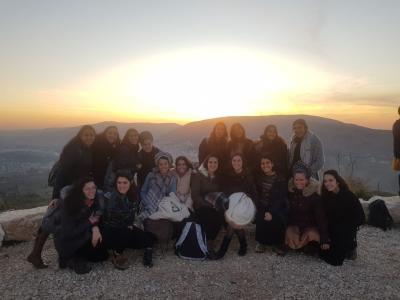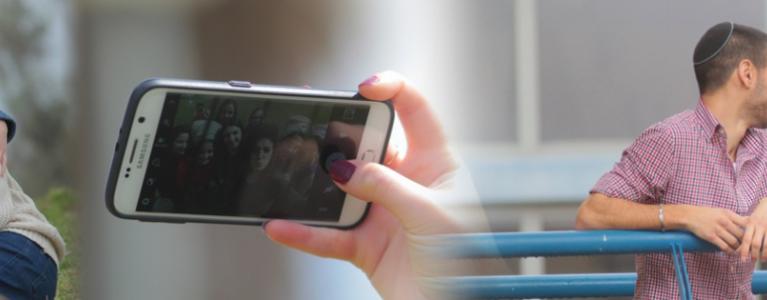
By Orot Israel College's History Department, Department Heads, Professor Ben Zion Rosenfeld and Dr. Yael Klein
With the imminent danger of the coronavirus at the very start of second semester 5780, we were facing some challenging issues from the perspectives of both the lecturers and students. The first problem was the sudden disconnection between students and their instructors. The necessity to stay home created a learning and instructional problem. Without the ability to meet face-to-face in the classroom we lost the direct contact and ability to express everything we had to say, as concerns teaching the subjects and the questions and answers between teachers and students.
Perhaps the main issue, for which at this point in time I am not sure we have a solution, is the capacity for human expression within a study group, which adds to the dimension of the “spirit of the historic content,” and oftentimes can open thoughts and general understanding of the material, creating perspectives of more extensive and all-encompassing historic insight. There is nothing like live face-to-face meetings, in which teaching informative material isn’t just passing on information, but enables fruitful discussion contributing to absorbing the material with a treasure of expansive insights. This allows the students to absorb material in depth and with broad insight, and directs them how to pass this on in the extensive and diverse field of education to the next generations of students.
In the meantime, the arrival of “Zoom” gave us an opening to an efficient temporary solution. Passing on the subject matter is carried out in this manner, and it turns out that there is even a certain advantage with the output of the material. We at least sensed as we passed on the information that we were able to squeeze more material into a Zoom session, explain it just as well, and even managed to intensify the exams.
But, as we emphasized this is a mixed blessing, as Zoom doesn’t have the human dimension, and hence, the teacher is missing, along with all his inner and rational abilities to use the utmost of his teaching aptitude.
We have recently received official notice that classes will not resume for the first semester of the coming academic year, therefore Zoom will play a major role in our lives at least for the first semester of 5781. We will have to get used to it and live in its shadow, with its abilities and limitations. We will of course utilize all our abilities to continue to teach using the most optimal methods.
Despite this challenging semester, our department had a successful academic year according to the advanced program that we started putting into effect three years ago. The program further strengthened the level of historic thought processes in the courses, the expansion and intensification of the standards that were given in the various courses and raising the scientific level.
Accordingly, the program also represented a more advanced structure of courses that enabled a broadening of historic information and deepening of scientific knowledge with enhanced insight. The structure also included a more orderly division of learning according to historic periods from the distant past up to this generation, with emphasis on historic problems during the transitions between periods. The approach comprises enhanced and assimilated general historic studies and Jewish history in all the courses, in accordance with the requirements of the Education Ministry.
We continue to train students, who will be able to cope with the many challenges of the period they are studying in, challenges in the field of historic discipline, challenges in the realm of historic education of the contemporary generation, challenges in the technology and education fields, and more.
As we aforementioned, teaching and studying processes through Zoom presents difficult challenges, but thanks to Zoom the students’ technological learning capabilities have expanded and they learned how to apply this ability in the field of teaching.
We are facing a challenging future of studies of the multifaceted historic past, with the hope that we can soon return to the classroom with our students for face-to-face dialogue.


